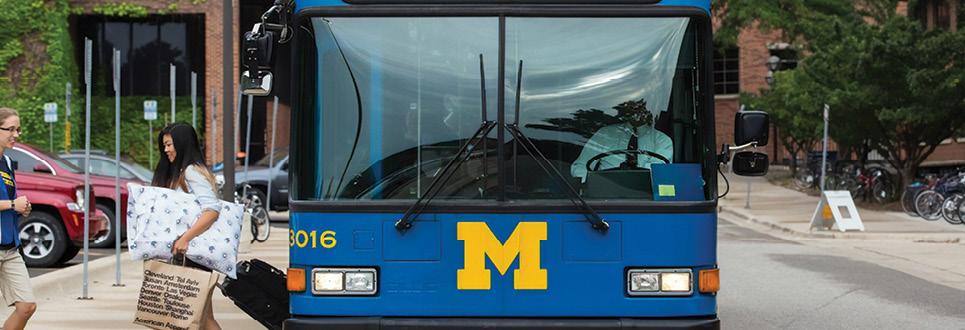Exams & Visas


An important exam that non-native speakers of English will need to take for admission consideration to the University of Michigan assesses English language proficiency. We are seeking a high level of proficiency in English due to the nature of the environment into which you will be entering—although the campus community represents a wide range of cultural and geographic backgrounds, American English is the dominant language in the classroom. As a result, we do not offer intensive English make-up course work for conditional admission. Once enrolled, you can undertake a course of language study to improve your skills.
If English is your second language, you must take the TOEFL, IELTS, ECPE, CAE or CPE, PTE Academic, or MET examination and earn a passing score in one of the following acceptable ranges:
Exceptions: You can be exempted from taking any of these exams if your SAT Evidence-Based Reading and Writing score is 650 or above (600 or above if presenting an old SAT critical reading score), or if both your ACT Reading and English scores are 27 or above, and if you have recently completed at least four years of rigorous academic study in any of the following countries: Anguilla, Antigua, Barbuda, Australia, Bahamas, Barbados, Bermuda, British Virgin Islands, Canada (except Quebec), Cayman Islands, Dominica, England, Federated States of Micronesia, Grenada, Guyana, Ireland, Jamaica, Montserrat, New Zealand, Northern Ireland, Scotland, Seychelles, Shetland Islands, St. Kitts-Nevis, St. Lucia, St. Vincent and the Grenadines, Trinidad and Tobago, Turks and Caicos Islands, United States (other than Puerto Rico), US Virgin Islands, Wales. (Those in American Schools and British Schools abroad may also be exempted if at least four years of rigorous academic study has recently been completed if scores meet above standards.)
The English Language Institute provides advanced English language instruction to students who enroll at the university who speak English as a second or additional language, who already meet general TOEFL, IELTS, or MET requirements, and who already have a high level of English proficiency. It offers academic English courses and resources that enable students to continue to polish English skills at an advanced collegiate level during their time at Michigan.
All international students at the University of Michigan need both a passport from their home governments and a temporary visa from the United States. Above all, these documents provide you with proof of residence as well as highly reliable forms of identification. Because you will need the visa before you enter the United States, it’s a good idea to apply for it when you apply for your passport (if you haven’t already done so). At the latest, you should receive a valid visa a few months before your studies begin at U-M. In order to receive your visa, enrolling students must first fill out the Financial Resources Statement.
The two most common types of visas international students use are the F-1 student visa and the J-1 exchange visitor visa:
Most international students use the F-1 temporary student visa. To qualify for it, you must offer evidence that you will be enrolled full-time during the academic year. You can do so once you are admitted and confirm your intent to enroll. After we receive proof of full financial support, U-M will send you a Form I-20 to start the process of obtaining your visa. Once you have filled it out, you can take the form to a United States Embassy or a Consular Official and apply for the visa.
Note: If you already are studying in the United States and have an F-1 visa, you need to follow the transfer procedures explained on your new University of Michigan I-20 form on page two. You are required to present your new Michigan I-20 to advisors at our International Center within the first few days following enrollment at U-M. (An International Center advisor will be glad to assist you.)
If you are an international student who is sponsored by your government or another public source, you will qualify for the J-1 exchange visitor (student category) visa. For this temporary visa, you must provide evidence that you will be enrolled full-time during the academic year. Once you have been admitted and have confirmed your intent to enroll, the university or various sponsoring organizations will send you the DS-2019 form necessary to obtain this visa. You then can take the DS-2019 to a United States Embassy or Consular Official to apply for the visa.
Note: If you are a Canadian citizen who has been admitted to the university, confirmed your intent to enroll, and have proven that you have funding, you do not need a visa. Instead, at the port of entry you will be required to present the following:
You will then be issued an I-94 card indicating your student visa status.